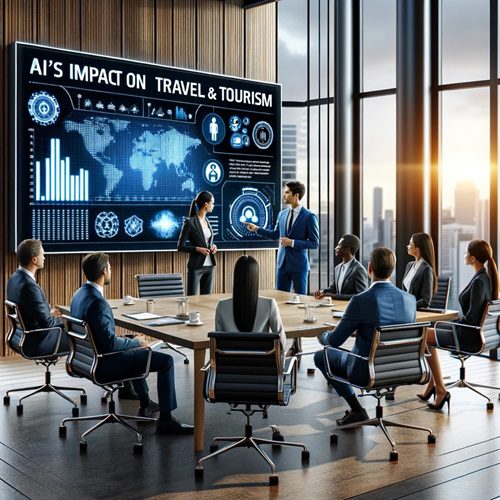 In a groundbreaking development for the travel and tourism sector, the World Travel & Tourism Council (WTTC), in collaboration with Microsoft, has unveiled pivotal insights into the role of Artificial Intelligence (AI) in shaping the industry’s future. The release of two seminal reports during the UN General Assembly in New York marks a transformative moment in travel technology.
In a groundbreaking development for the travel and tourism sector, the World Travel & Tourism Council (WTTC), in collaboration with Microsoft, has unveiled pivotal insights into the role of Artificial Intelligence (AI) in shaping the industry’s future. The release of two seminal reports during the UN General Assembly in New York marks a transformative moment in travel technology.
Entitled “Responsible Artificial Intelligence: Overview of AI Risks, Safety & Governance” and “Artificial Intelligence: Global Strategies, Policies & Regulations,” these documents offer a comprehensive look at the burgeoning influence of AI within travel and tourism. They emphasize a future where digital innovation enhances safety, boosts efficiency, and enriches customer experiences while adhering to ethical standards.
Julia Simpson, President and CEO of WTTC asserts, “AI is a transformative force across the travel and tourism landscape, reshaping customer interactions and operational efficiencies alike.” She highlighted successful implementations, such as AI-driven initiatives by major hotel groups to reduce food waste, which achieved significant cost reductions and substantial environmental benefits.
Julie Shainock, Managing Director of the Travel, Transport, & Logistics Industry at Microsoft, echoed these sentiments, stating, “AI is redefining the essence of travel experiences. Its adoption streamlines operations and enriches the human aspect of travel by removing mundane tasks and focusing on deeper, meaningful human interactions.”
The reports outline critical strategies for integrating AI in a manner that prioritizes transparency and fairness. This includes tackling inherent biases, ensuring robust human oversight, and establishing comprehensive governance frameworks to guide ethical AI deployment.
Policymakers globally are identified as pivotal players, shaping the landscape through targeted AI strategies and regulations to foster innovation while ensuring its ethical application. This proactive approach is crucial as the industry faces challenges such as a shortage of AI-skilled professionals, underscoring the need for strategic education and training initiatives.
The potential for AI to revolutionize travel and tourism is immense. It promises to enhance customer service, improve sustainability practices, and drive economic growth, making it a strategic priority for industry leaders.
WTTC’s new initiatives highlight the possibilities and underscore the sector’s commitment to responsible AI adoption. For more information and access to these reports, please visit the WTTC’s Research Hub.
Written by: Michelle Warner



















